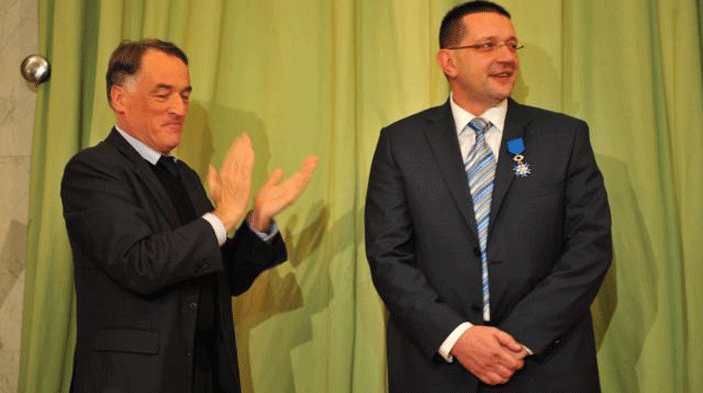Despite National Austerity, Serbian Emergency Management Earns Additional Funding
January 10, 2013
In a vote of confidence for the country’s Sector for Emergency Management, the Serbian government has moved to increase its roster of professional firefighters and rescue workers from 3,000 to 3,500.
The sector was formed in 2009 to more effectively abate the damage being caused by floods, fires, and other emergencies. In 2012 Serbia lost 30 lives and suffered an estimated 1 billion euro in damages due to droughts and associated wildfires, for example, and floods in 2006 and 2010 severely damaged Serbian cities and villages along the Danube and its tributaries.
The sector was assisted in its launch by the Preparedness, Planning, and Economic Security (PPES) project funded by the U.S. Agency for International Development and implemented by DAI. Emergency Management Director Predrag Maric was a key counterpart on the project, for which DAI helped bring Serbia’s legal framework up to European Union standards. DAI also assisted the sector and the National Training Center for Emergency Management to unify activities and personnel previously spread across several ministries.
“This new funding allows us to hire 500 new firefighters and rescue workers and to move out of an impossible situation, as it was during last summer’s catastrophic fires,” Maric said. “At that time we had to engage all the firefighters from across the country, and if there were another disaster on the other side of Serbia, there was no one left available to respond.”

(Photo by Nenad Milosevic, Tanjug)
The additional funding was approved despite the country’s ongoing steps to cut its budget deficit, signaling national recognition of the cost of emergencies and the effectiveness thus far of its new Sector for Emergency Management.
A country of seven million, Serbia, one of the successor states of the former Federal Republic of Yugoslavia, in March 2012 became a candidate for accession into the European Union. Increasing the number of firefighters and rescue workers per capita is one criterion for accession.
“All European countries are investing in services like ours because the prevention (of damage from emergencies) is a first-rate national interest,” Maric said. “We have complete understanding by the Prime Minister (Ivica) Dacic, but the problem arises, as always, when you need to define the next budget.”
In addition to winning additional funding for firefighters and rescue workers, Maric, at right in the above photo, was recently decorated by the Ambassador of France in Serbia, Francois Xavier Deniauwith, above left, the medal of the Knight of the National Order for Merit in recognition of the emergency management cooperation between those two countries.
Assisting Serbia with its emergency preparedness represented one part of the DAI-led PPES project. The team also conducted numerous activities to empower Serbian youth, and is currently wrapping up an economic strengthening component that, among other results, helped form business clusters for jeans, shoes, and other products that have led to increased domestic and export sales for local companies.
RELATED CONTENT:
DAI’s Margie Cook Named Officer of the Order of Australia
DAI’s Margie Cook has been named an Officer of the Order of Australia. Cook was recognized on January 26, Australia Day, for her “service to the international community through the promotion of democratic electoral systems, and to human rights,” in a distinguished career that includes work in Afghanistan, Kenya, Nigeria, and Zimbabwe.
Read More